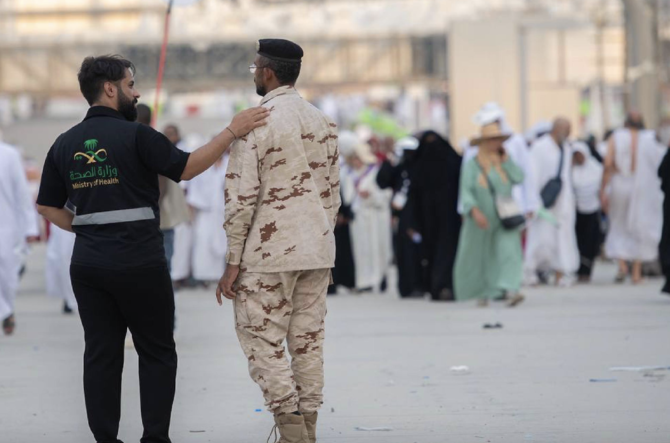More than 1,300 people died while performing Hajj this year, having walked long distances without sufficient protection from the sun – 83 percent unauthorised – Saudi Health Minister Fahd Al-Jalajel said.
Among the deceased were several elderly and chronically ill individuals.
The health minister underscored the significant efforts made by the competent authorities to raise awareness on the dangers of heat stress and the importance of preventive measures.
He added: “Our heartfelt condolences go to their families …. All reports have been compiled, families of the deceased notified, and identification completed, despite the initial lack of personal information or identification documents. Proper processes were followed for identification, burial, and honoring the deceased, with death certificates provided.”
Health workers performed more than 465,000 health procedures, including 141,000 on people who were unauthorized to perform Hajj.
“This achievement was made possible through the coordinated efforts of the health system and the Hajj security forces, with no recorded outbreaks of epidemics or widespread diseases,” the minister said.
“The health system provided more than 465,000 specialized treatment services, including 141,000 services to those who didn’t obtain official authorization to perform Hajj.”
But Al-Jalajel said the health of pilgrims during Hajj was good, despite the high temperatures experienced at the holy sites.
He praised the work of the health authorities’ swift response, and the effective support of the Hajj security forces in managing and reducing the effects of heat stress.
The health system treated cases of heat stress this year, with some individuals still under care.
The minister added that the Kingdom’s provision of free health services to pilgrims commenced even before their arrival, with awareness programs at air, sea, and land border crossings. About 1.3 million preventive services were delivered, including early detection, vaccinations, and medical care upon arrival.
The healthcare services offered included open-heart surgerie, cardiac catheterization, dialysis, and emergency care, totaling over 30,000 ambulance services, with 95 air ambulance operations ensuring the delivery of advanced health services in medical cities across the Kingdom.
Additionally, the healthcare system made available nearly 6,500 beds and rooms. Measures to combat heat stress included the development of devices that enable the rapid and effective rescue of affected individuals.




